
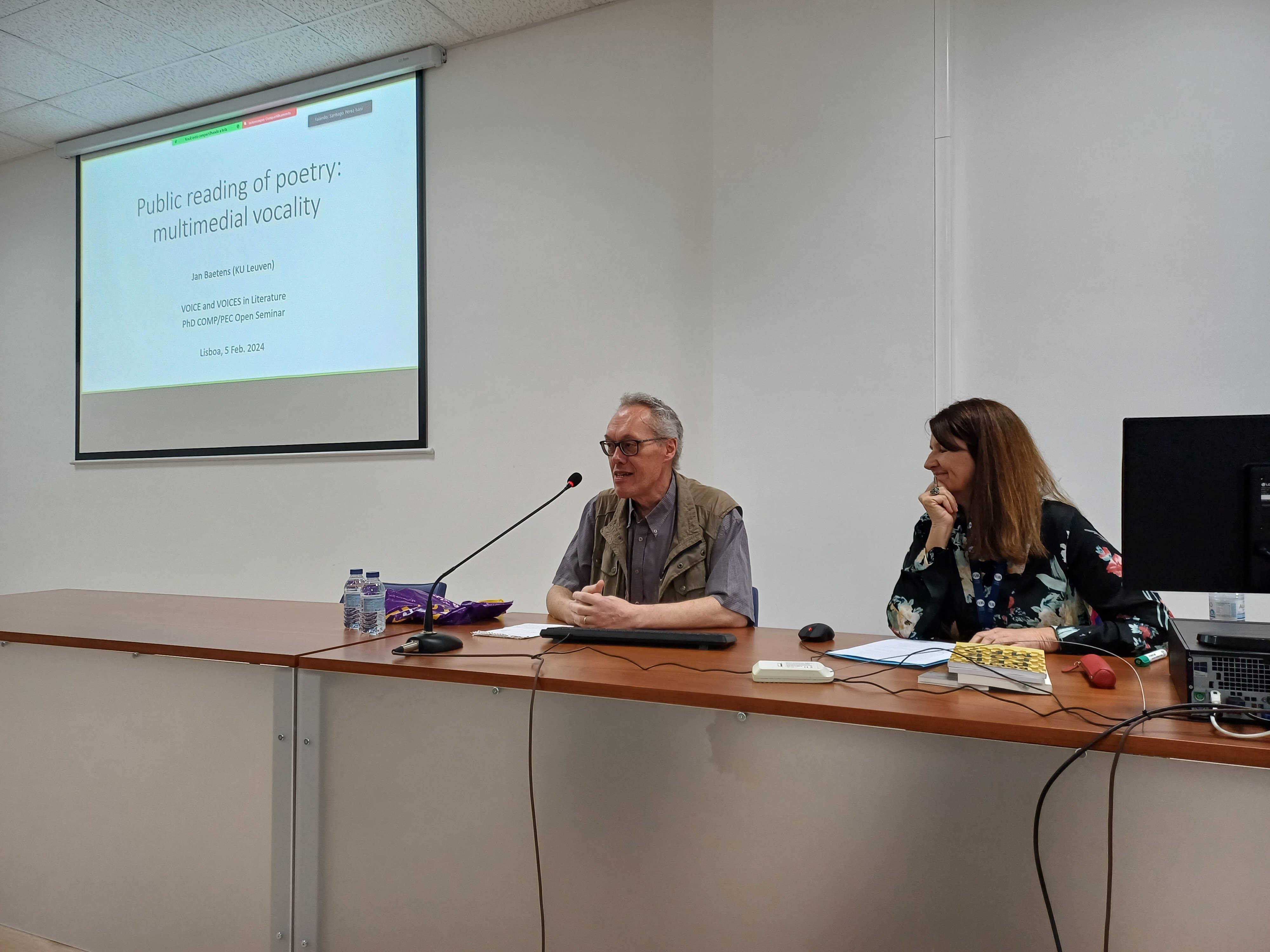
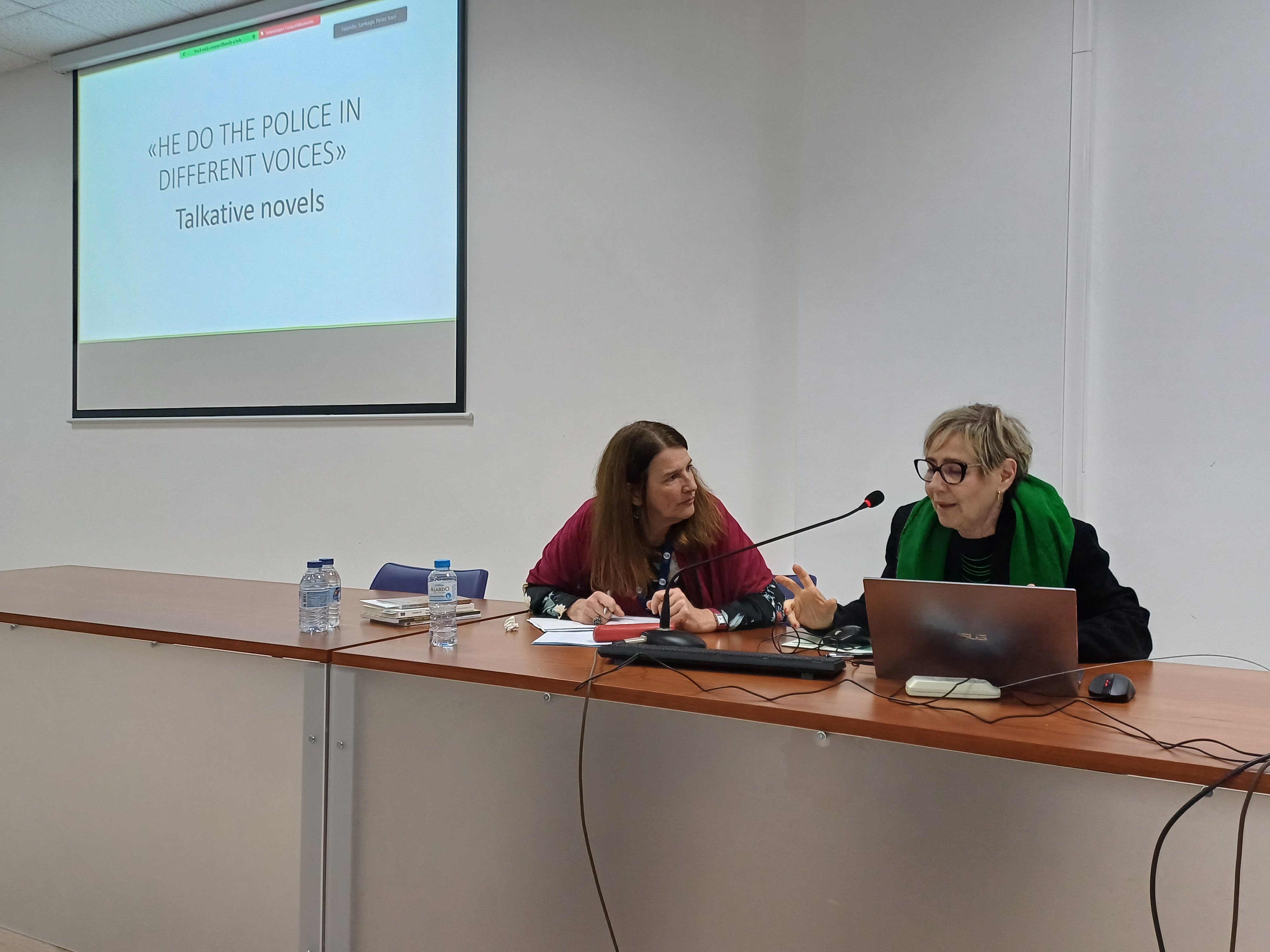
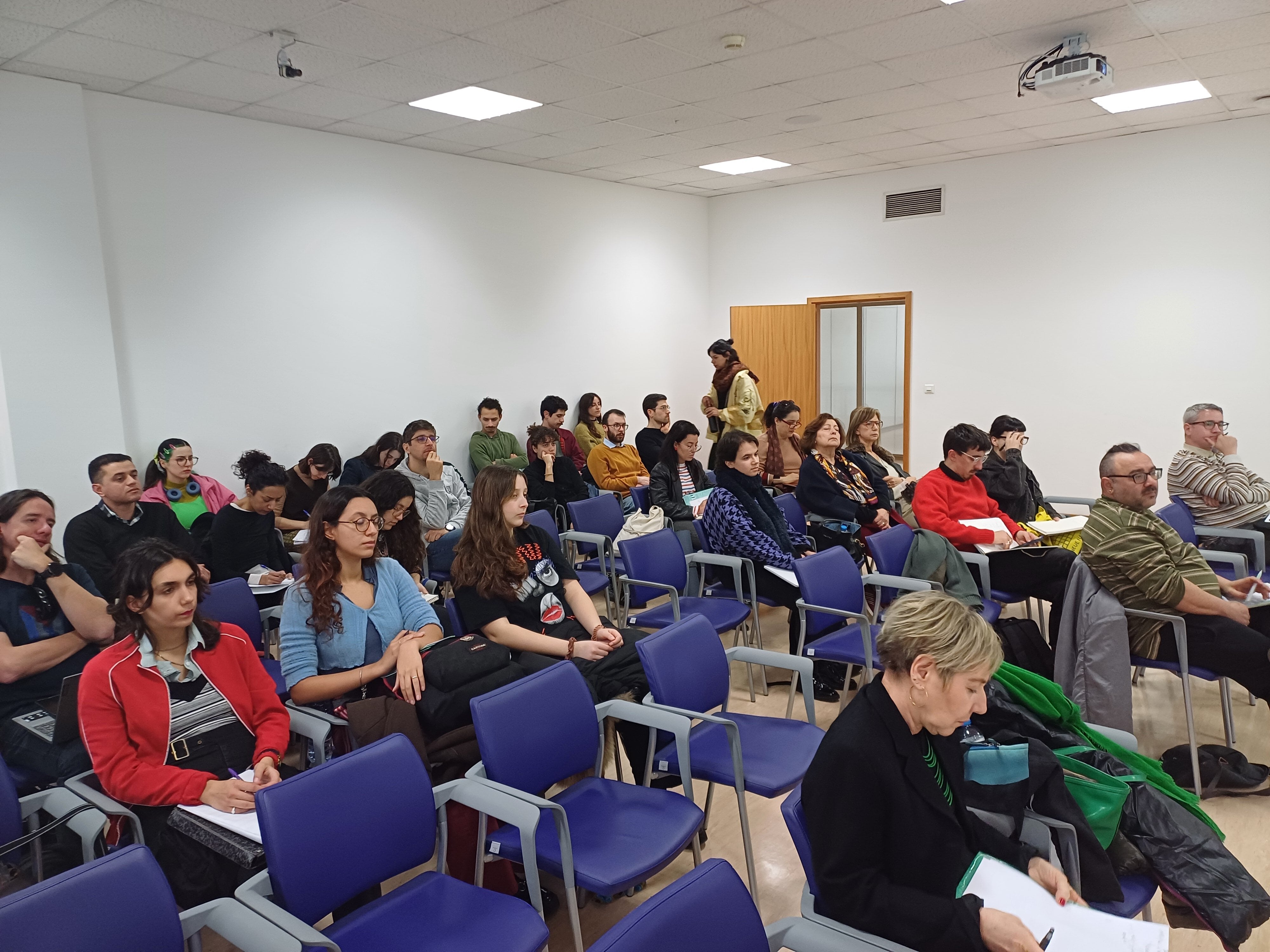





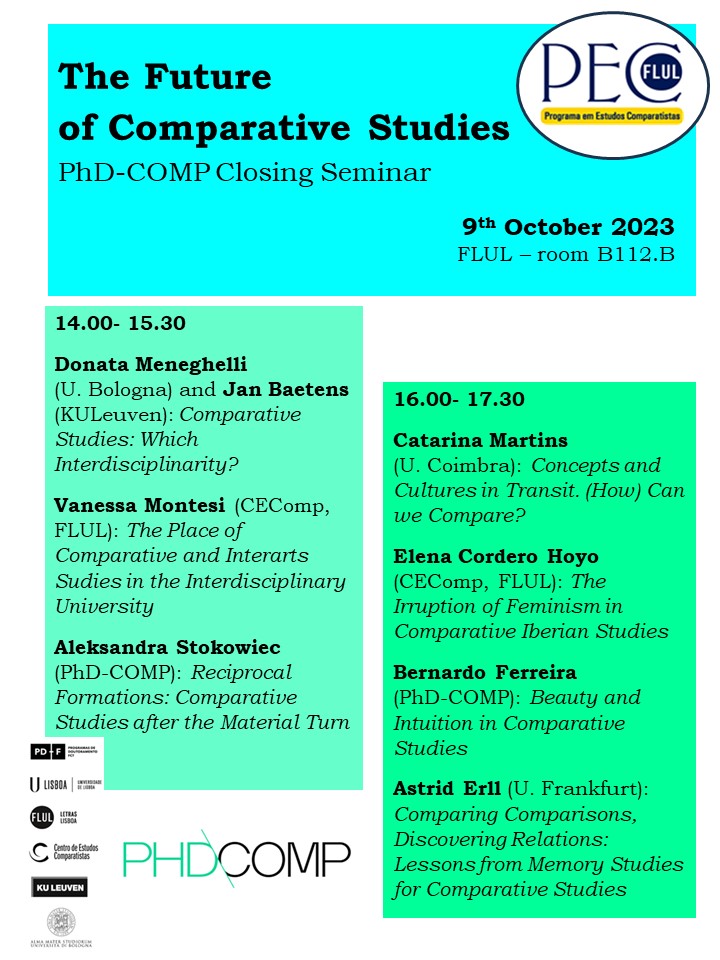
How may we envisage the current and future paths of Comparative Studies, as a field of research in the Humanities?
Several answers to this question will be proposed and discussed in the seminar «The Future of Comparative Studies», organized by the Graduate Programme in Comparative Studies on October 9th, 2023, at the opening of the new academic year.
At the same time, this seminar will be the final meeting of PhD-COMP (2015-2023), bringing together professors, doctoral students and PhD holders from this Programme.

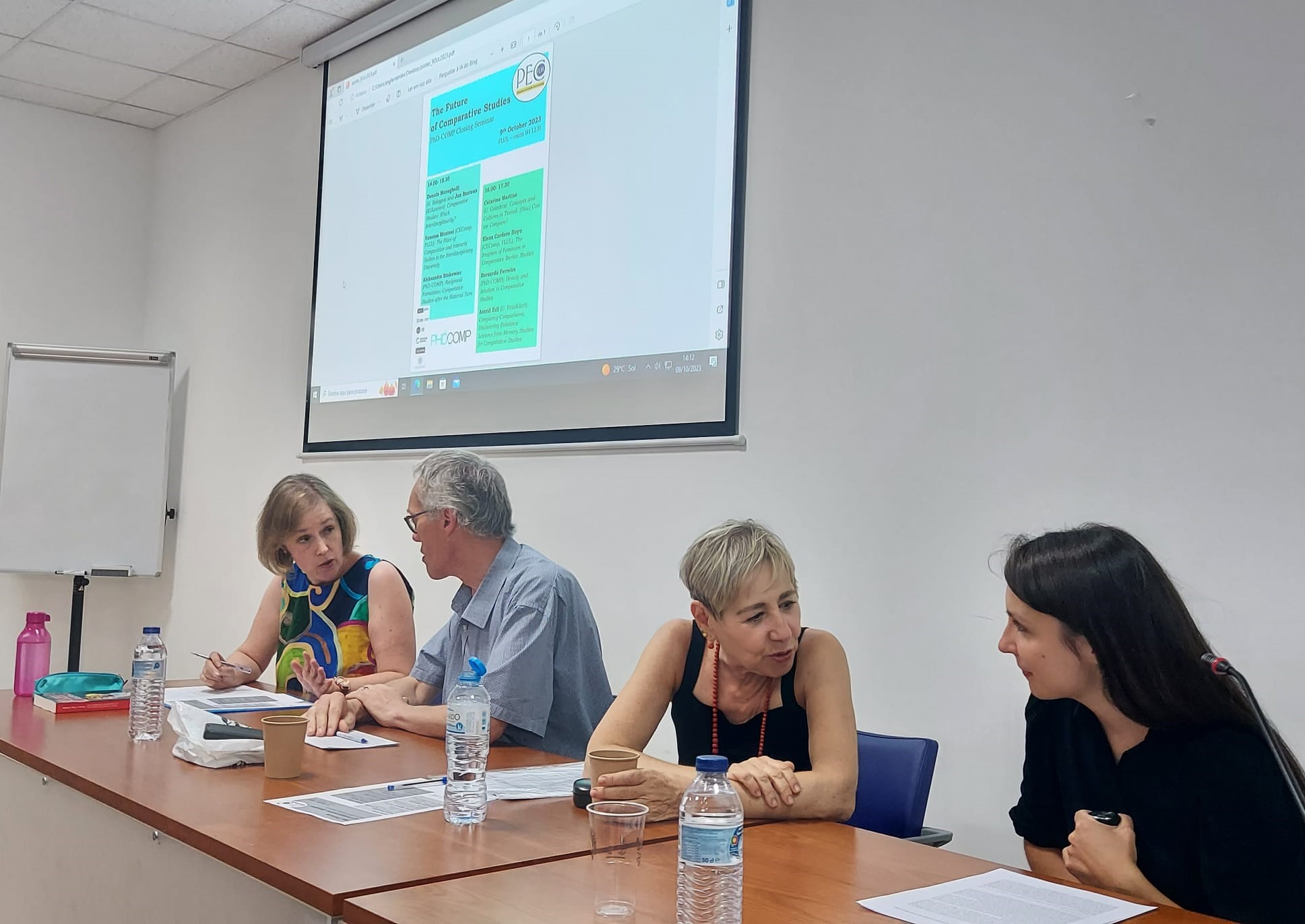





«The Writing on the Wall: The Poetics of Architectural Inscription in Medieval Andalusia and the Early Modern Persian World»
Paul Losensky (Indiana University – Bloomington)
May 3rd, 2023
Calligraphy and the written word cover buildings throughout the Islamic world from Andalusia to India. Cast in tile, carved in stone, or cut into stucco, calligraphic forms dominate the surface decoration of both courtly and religious architecture. Though many patterns are based on the repetition of single words or formulaic phrases, other inscriptions feature poems written specifically for their architectural setting, integrating poetry into the material fabric of the structure.
This lecture will examine the rhetoric and poetics of these architectural inscriptions from the late medieval Nasirid palace in Granada to the Mughal royal gardens of Kashmir. As they commemorate the building as a sign of the wealth and power of its patron, these inscriptions also guide the viewers’ gaze to specific architectural features and direct their movements around the structure. In others, the building speaks for itself, celebrating its beauty and explicating the significance of its visual form. Even when the inscription has the basic function of providing the date of the building’s construction, it draws its readers into the somatic experience and semantic meaning of the architectural structure.
Round-table with Amândio Reis, Ana Cristina Mendes and Karen Bennett
Chaired by Marta Pacheco Pinto
2nd November 2022
4pm
Room B112.B – FLUL


Helena Carvalhão Buescu (Universidade de Lisboa)












23-24 May, 2022
11:00am – 1:00pm
Room B112.B FLUL
Marta Puxan-Oliva (Universitat de les Illes Balears)
Oceanic imaginaries: cross-cultural encounters in geography and literature
This seminar introduces students to Oceanic Studies, an interdisciplinary field that focuses on the social construction of the ocean, especially driven by new conceptions of space in critical and political geography. The ocean here is conceived as a physical space that changes over time, that is being socially used and imagined. These multiple layers produce several conceptions of the ocean, culturally linked to historical facts, idealizations, and diverse traditions as well. Literature has had an enormous influence in shaping, dialoguing, and contesting oceanic imaginaries, changing its perceptions in relation to the changing times. This block seminar will introduce the social construction of the ocean in contemporary literature through an interdisciplinary perspective.
In a first session, the seminar will delve into the field of oceanic studies from the perspective of critical geography and literary criticism, setting the theoretical basis of the discussion based on the work of scholars like Philip Steinberg, Doris Massey, John Hannighan, Lauren Benton, Hester Blum, Elizabeth DeLoughrey or Isabel Hofmeyr. In the second session we will examine South African J.M. Coetzee’s novel Foe and Cambodian Vannak Anan Prum’s graphic memoir The Dead Eye and the Deep Blue Sea: A Graphic Memoir of Modern Slavery. These two literary texts will help us discuss and represent the diverse oceanic imaginaries from the uses of sea for criminal practices like colonial slavery or modern slavery in fishing boats, to revisions of our social perspectives through new materialist perspectives that invite ecocentric conceptions of the ocean.
Bio-note
Marta Puxan-Oliva is Ramón y Cajal senior researcher at the Universitat de les Illes Balears. She has worked for several universities and conducted research stays at Princeton University, the University of Chicago and Harvard University (Marie Sklodowska Curie Outgoing Fellowship, 2012-15). She is a specialist in Comparative Literature, in the fields of narrative theory, comparative racial studies, ecocriticism and global literary studies. She has published articles in journals like Poetics Today, Studies in the Novel, English Studies, Letral, Journal of Global History or the Journal of World Literature. Her book Narrative Reliaiblity, Racial Conflicts, and Ideology in the Modern Novel (Routledge, 2019) bridges narrative theory with the constitution of racial ideologies.
Currently, Marta Puxan-Oliva codirects with Neus Rotger the project “The novel as global form: Poetic challenges and cross-border circulation” (2021-24). For the last few years, she has been working on “global environments” in literature, especially the ocean, studying environmental criminality at sea in contemporary literary and film narratives. She is a member of the research group LiCETC: Literatura Contemporània: Estudis Teòrics i Comparatius.









20th April 2022
5 pm
Join Zoom Meeting
https://zoom.us/j/95531349836?pwd=UXE3YVhhNldSSkpwb0hLVWFzS25oQT09
Meeting ID: 955 3134 9836
Passcode: efRZ44
Estela Vieira (Indiana University – Bloomington)
Friendships, Communities, Legacies: Women Writers in Nineteenth-Century Portugal
This talk presents my current research: a manuscript devoted to studying a selection of writing by nineteenth-century Portuguese women writers. Women’s writing in Portugal before 1900 remains understudied and poorly understood. Writing penned by women during this time is little known and generally dismissed as second-rate. After summarizing the discourse that has misguided these discussions, I lay out alternative forms of conceptualizing the literary contributions of Portuguese nineteenth-century female authors by focusing on the ways they theorize and articulate in their writing female friendships, communities of women, and legacies of women readers and writers. I then present brief but exemplifying readings from the work of Maria Browne (1797-1861), Ana Plácido (1831-1895), Guiomar Torresão (1844-1898), and Maria Amália Vaz de Carvalho (1847-1921). Such analyses advance our understanding of these texts and writers obliging us to reconsider and acknowledge their cultural and literary import.
Bio:
Estela Vieira is a scholar of Comparative and Lusophone Studies with special interests in nineteenth-century literature, film, and women writers. Her first book, Interiors and Narrative: The Spatial Poetics of Machado de Assis, Eça de Queirós, and Leopoldo Alas (Bucknell University Press, 2013), studied the function and representation of the interior space in realist novels. She is currently working on a manuscript that studies women authors in nineteenth-century Portugal.
Estela Vieira is also interested in film and has published articles on film and literature, political memory and cinema, and Iberian women filmmakers. Her research has focused on nineteenth-century writers, on Portugal’s cultural history, and on comparative approaches to Lusophone and Hispanic studies.




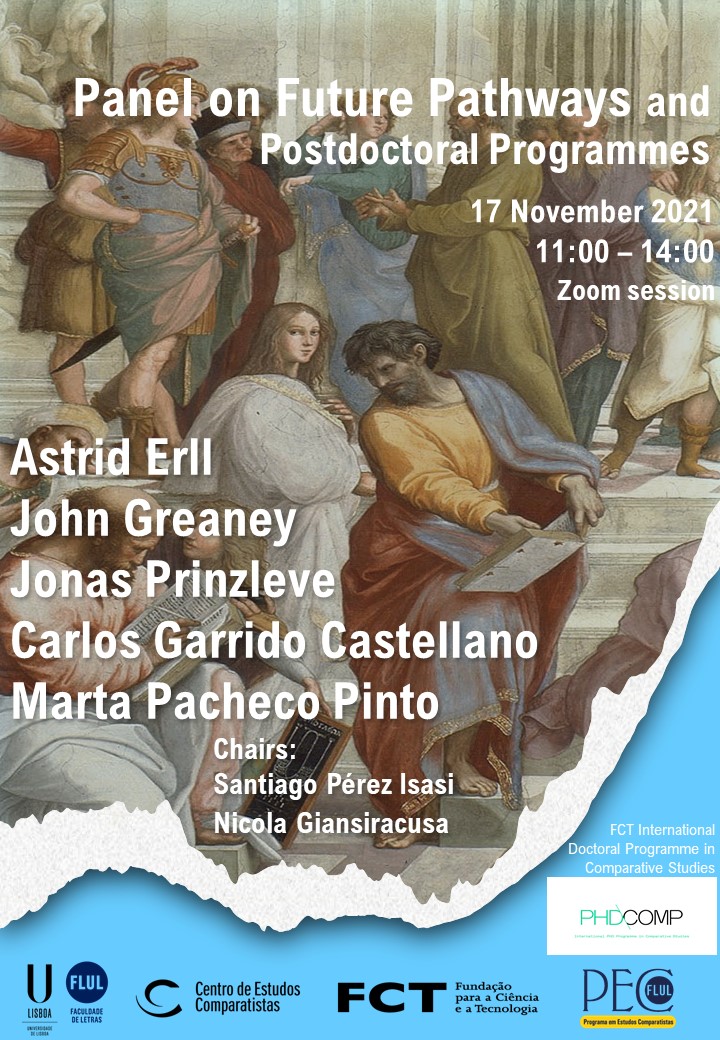
17th November 2021
11am – 2pm
Zoom Roundtable
Chaired by Santiago Pérez Isasi and Nicola Giansiracusa
This panel gathers Professors and PhD students who will share their academic experiences and professional trajectories, and talk about career pathways for PhDs, namely the applications to the Humboldt, Marie Curie, ERC and FCT programmes.
Organized within the seminar Graduate Research I, coordinated by Santiago Pérez Isasi, and with the collaboration of Nicola Giansiracusa, PhD-COMP’s students’ representative, the panel is expected to provide useful advice on how to succeed in a competitive job market.






Bag Lady Scholar: Five Decades of Undisciplined Research—from the Great Depression through the Cold War
28th September 2021
4:30 pm
Zoom meeting
Paula Rabinowitz (University of Minnesota)
As both an undergraduate and graduate student, I received degrees in American Culture precisely because I could never fit myself into disciplinary molds. Like a bag lady gleaning the city streets for useful, or even useless but eye-catching, objects, I pick up this field or that as it suits my interests. While I do not fully understand exactly what comparative studies means, over five decades of scholarship, my work is deeply interdisciplinary and so inevitably requires comparisons across objects, methods, theories and archives. I have never recognized disciplinary boundaries and tend to go where my ideas and research lead me. I am thus skeptical of concepts like media specificity, for instance, as various modes of thought and communication—written, visual, audial, haptic—contribute to our knowledge of history and experience; so, in a sense, I practice comparative studies in my work, even if I don’t compare one thing to another.
Currently, I am working on a very undisciplined project, entitled “Cold War Dads,” which entails biography, memoir, cultural studies–photography, literature, film, television–gender studies, history, political science and more, through a look at two fathers and their relationships to spies, bombs and secrecy during the middle decades of the 20th century.
What is the relative distance between a child and the state? This is a literal question when the child’s relative is tied to national security. But, as Annette Kuhn shows in Family Secrets, her feminist theoretical memoir about archives of family photographs, entering any family means encountering the state. How does one discern the past when its records are shrouded by faulty memories, missing documents, bureaucracy, classified material? Secrecy and surveillance, the hallmarks of the national security state, render its archive barely approachable. This was especially true during last century’s wars—both hot and cold—when the apparatus of security put the state into private life: some agencies might watch a father’s movements as an enemy; other agencies employed a father to detected enemy weapons. Despite being allies during WWII, this enemy was the Soviet Union and more broadly communism in Asia, Europe and the US.
Two Cold War dads—mine and my husbands’: one (Samuel Josiah Rabinowitz), an engineer heading the Advanced Research Projects Agency’s Project Defender; the other (Joseph Milton Bernstein), a blacklisted editor and translator investigated as a Communist spy—both Jewish sons of immigrants, on the periphery of postwar history, center this story of family secrets. A story of what is mostly NOT known: how and why families during the Cold War kept secrets in the service of safety and security—understood very differently in private and by the state.
Delving into family history and national security, means exposing secrets as well as recognizing the limits of knowledge. No matter how many archives, exhibits, sources and histories one consults, inevitably, gaps occur. Like the urban scavenger, one carries too much and not enough to complete the story, fill in the frame. Thus, the recourse to comparative, undisciplined and unruly attempts to cover over the lack of coherence.
This talk—an autoethnography, tracing my eccentric career as an undisciplined scholar of 20th-century America —discloses what I know (and don’t know) about my current project after 20 years of research.










Representing Life, Resisting Power: A Comparative Approach to Contemporary Biopolitics Through The Lenses Of Gonçalo M. Tavares, Francesco Verso, Ken Macleod, and Suzanne Collins
12 Julho 2021
14:30 – Videoconferência Zoom
Videoconferência Zoom: https://videoconf-colibri.zoom.us/j/83705562165?pwd=S2s3UnFIZkEvbi96RlIxcFhqZ1RVQT09
ID da reunião: 837 0556 2165
Senha: 073077
Orientadores: Susana Isabel Arsénio Nunes Costa Araújo, Andrea Cavalletti e Ricardo Gil Costa Fonseca Soeiro
Presidente do Júri: Maria Cristina de Castro Maia de Sousa Pimentel
Membros do Júri: